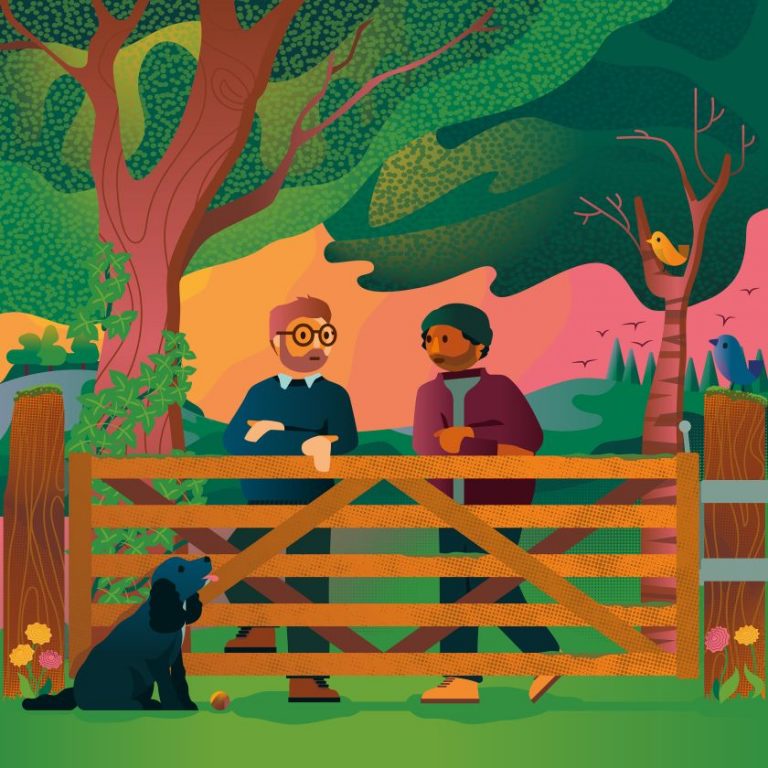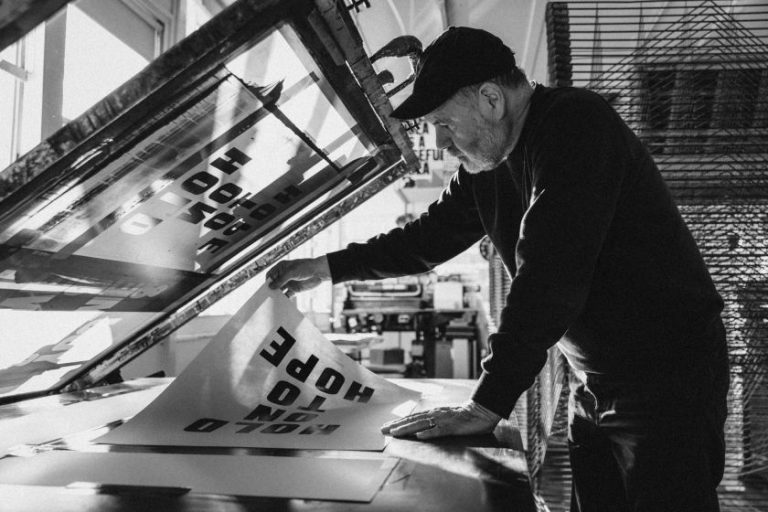GOSE required an identity as unique as its product, which Bala delivered through semi-abstract illustrations and an acidic colour palette that reflects the beer’s salty flavour.
Designing a product that consumers haven’t seen before is challenging enough, but when the main ingredient is an insect, it becomes even more important to make the identity appealing and desirable.
Mexico City and Los Cabos-based branding studio Bala was given this all-important task by Mexican beer brand Cerveza Cru Cru, who wanted a label design for their new beer where grasshopper – or “chapulín” – is the main ingredient. Bala co-founder Rodrigo de la Reguera remembers the first time he tasted GOSE beer one summer afternoon on a terrace in the Juárez neighbourhood of Mexico City.
He describes his first experience of tasting it as “multi-sensory, with acidic notes and a salty, malty, and herbal profile”. The peculiar taste profile of this beer style is its distinctly salty flavour because the original production process used salty water from the Gose River in Bavaria, Germany.
Although the idea of designing a beer with grasshopper struck Reguera as “strange, unusual, and different”, he immediately felt that its unusual and refreshing taste was unforgettable and that the flavours truly represent a part of Mexican Culture. “This is why we fell in love with the idea of designing its label,” he adds.
Not only this, but Cerveza Cru Cru grew alongside Bala, and the studio designed the brewery’s identity in its early years. “Our payment even translated into a good number of beer cases for years,” Reguera reveals.
For this most recent project, Bala aimed to design a label that captured the essence of GOSE’s flavour and paid homage to the unique and iconic grasshopper ingredient without resorting to a literal representation. Since this is the first beer made with grasshopper, Reguera says that the team wanted the design to be “as radical as the recipe”.
“We didn’t want to follow the traditional logic of how elements are presented on a beer label, nor did it seem appropriate to create a semi-abstract illustration of the grasshopper, as it could be a deterrent for many people who are hesitant to try insects”, he explains.
The letter ‘O’ was initially created to represent the eye of a grasshopper, but Bala pivoted and redrew it to look like a human eye, with the pupil dilating in a bid to convey the intense moment of tasting the sour, salty beer. Other label elements are a highly abstract representation of the cricket’s tail and a scene that represents the salty taste with green and pink dots.
More hints of the grasshopper ingredient appear in the abstract depiction of a grasshopper’s legs and patterns that indicate the sound they make through vibration. Each element was chosen to convey different aspects of the grasshopper and the sensory experiences of tasting the beer.
Reguera says: “The principle of patterns allowed us to create a unique language with the potential to expand its expression beyond the label.
“We created unconventional scenarios, such as placing the bottle upside down, without worrying about the readability of the text and relied on the recognition of colours and textures to transform them, through repetition, into brand signs that we could leverage with animations.”
This resulted in a suite of dynamic and ownable assets for GOSE’s social media and gave the brand opportunities to develop its visual language, “even through phrases or activations that follow the principles of the unusual, the strange, and the different”, Reguera adds.
Hues of green, blue, and yellow are set against magenta, pink, and dark blue, evoking acidic sensations that complement the brand’s eccentric narrative. This, paired with the product’s unique taste, gives meaning to the entire brand experience, which is totally disruptive in its category.
Though this was an exciting project for Bala to work on, the label’s readability was challenged. However, Reguera explains: “We’re not aiming for consumers to decode the beer through the information on the label.
“Our intention is to spark the public’s curiosity, inviting them to try it, and once they have the bottle in hand, they’ll discover that the sour beer they’re enjoying is made with Mexican grasshoppers.”










